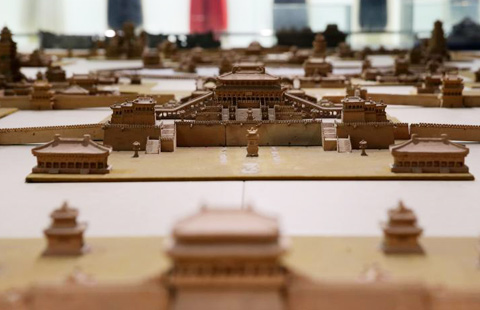Housing prices begin to stabilize in key cities
By Wu Yiyao (China Daily) Updated: 2016-10-22 07:06Hard landing in property market unlikely following cooling measures, say analysts
Home price increases in key cities may ease after a series of cooling measures take effect, though a hard landing of the market is unlikely, said analysts.
New home prices in 63 out of 70 cities that the National Bureau of Statistics monitors gained in September. But the real estate market "apparently cooled" this month after cities took measures to curb rapidly rising housing prices, according to a statement by the NBS on Friday.
Liu Jianwei, spokesman for the NBS, said growth in residential property prices that was too rapid in first-tier cities and some second-tier cities has apparently been curbed, and home prices are stabilizing.
Compared with September, new home price growth has slowed this month.
Year-on-year growth in floor area under construction also has slowed, from 4.6 percent in August to 3.2 percent in September.
Shenzhen, one of the cities with the fastest housing price growth, saw average new home prices decline by 0.3 percent in the first half of October compared with September.
Prices in some other cities dropped between 1 percent and 3.8 percent, the NBS statement said.
More than 20 cities launched cooling measures, including stricter regulations on buyers' qualifications to buy second or third homes and tightened credit for homebuyers in a bid to curb speculation.
However, analysts said they believe a hard landing in the key cities' property market is unlikely.
"Policy changes will remain gradual and focused on upper-tier markets, meaning that a property market crash is highly doubtful," said Sam Xie, head of CBRE China Research.
Wang Tao, chief China economist of UBS Group AG, said in a research note that the chances of a home-price plunge are low. "These curbs only aim to rein in the homebuying panic and to stem the bubble, instead of being an all-around shackling of the property market," said Wang.
James McDonald, a Savills China researcher, said lower-tier cities may see decreasing prices due to inventory pressure.
Price increases in first-tier cities such as Beijing and Shanghai will slow down but are unlikely to stop if the land supply does not pick up quickly, he said.
Average home prices in Wenzhou, Zhejiang province, dropped by 3.62 percent, from 18,093 yuan ($2,670) per square meter in September to 17,438 yuan in the first half of October.
In Harbin, capital of Heilongjiang province, home prices dropped by 1.23 percent, from 7,837 yuan per square meter in September to 7,740 yuan in October, according to data from housing authorities.
In Shanghai, the average home price went up by 3.41 percent month-on-month in the first half of October to 49,644 yuan per square meter.
- Housing prices begin to stabilize in key cities
- AI to spur R&D in service robot industry
- China hasn't scrapped individual forex purchase cap: Official
- Digital China Group signs cooperation agreement with Oracle
- China-Russia Internet Media Forum to open in Guangzhou
- Cross-border capital outflows to remain stable: Official
- Chateau Lafite Rothschild announces partnership with JD.com
- Brick miniature of ancient palace on display in Xi'an


















